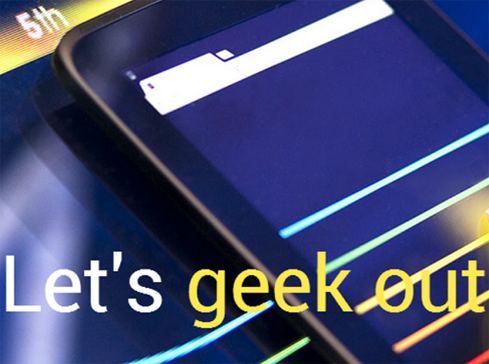Google prepares to add tablets to devices that might use its 3D mapping system to enrich commerce, gaming, and more.

Google I/O 2014: 8 Things To Watch
Google I/O 2014: 8 Things To Watch (Click image for larger view and slideshow.)
Google reportedly is developing a 7-inch tablet that incorporates Project Tango, the company's experimental 3D space modelling technology.
The company plans to make about 4,000 Project Tango-enabled tablets starting next month, according to The Wall Street Journal, equipped with a set of sensors and electronics similar to those in its Project Tango phones: a depth sensor, two cameras, gyroscopes, orientation sensors, and a vision-processing system.
As it happens, next month is Google's annual developer conference, Google I/O, and 4,000 is just about the number of devices the company might order if it intended to distribute them to conference attendees.
Project Tango comes out of Google's Advanced Technology and Projects (ATAP) group, which used to be part of Motorola Mobility. It's an effort to equip mobile devices with the sensors and circuits necessary to create 3D models of local environments in real time.
[Why you should consider Microsoft's latest tablet: Read Microsoft Surface Pro 3: 8 Winning Features.]
Having accurate, detailed 3D maps of one's surroundings opens up many new possibilities for mobile applications. First and foremost, such information could help robots (or sight-impaired people) navigate through unfamiliar surroundings. Google last last year purchased a handful of robot technology companies.
On Thursday, IEEE Spectrum reported that researchers at the University of Pennsylvania, led by professor Vijay Kumar, had incorporated a Project Tango phone into one of their quadrotor unmanned airborne vehicles (UAVs) to provide the miniature aircraft with a sense of its location without using GPS.
A video posted by Kumar shows how the quadrotor can hover in place using Project Tango data and can fly back to that place if pushed into a different position. The advantage of navigating without GPS is that Project Tango guidance is more accurate -- initial tests suggest accuracy within a centimeter, compared to a few meters for GPS -- and doesn't require a wireless signal.
Detailed real-time maps of a person's surroundings could prove useful for a variety of applications beyond navigation, such as advertising, entertainment, and ecommerce. The possibilities for mobile games are particularly intriguing. A developer could create a multiplayer version of laser tag, for example, because the positions of players in the real world would be instantly accessible through their Project Tango-enabled phones. Another possibility might be a spatial diff check app, which could allow users to determine what, if anything, has changed in a given room or area.
To create such apps, Google has to get its technology into the hands of developers and to encourage them to experiment. The company began doing so in March when it distributed a few hundred Project Tango phones. Project Tango tablets appear to be coming shortly.
IT is turbocharging BYOD, but mobile security practices lag behind the growing risk. Also in the Mobile Security issue of InformationWeek: These seven factors are shaping the future of identity as we transition to a digital world. (Free registration required.)
About the Author(s)
You May Also Like







